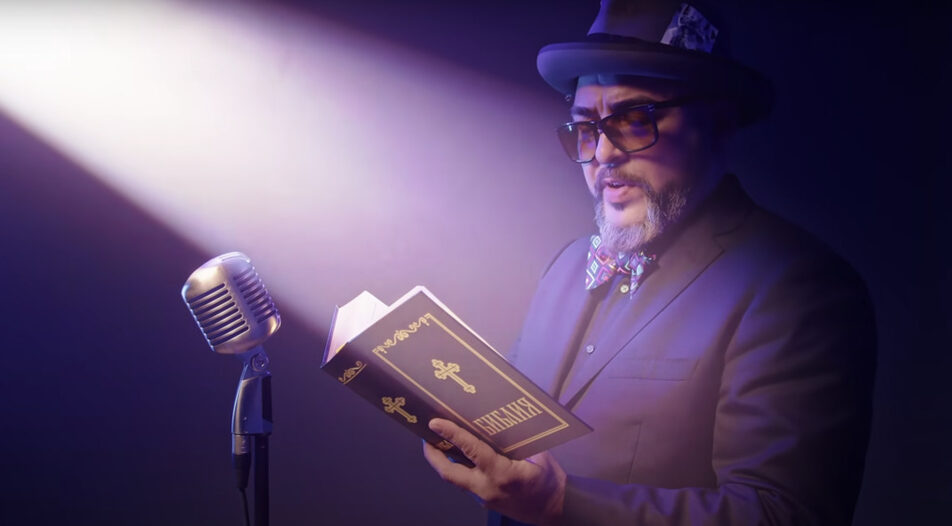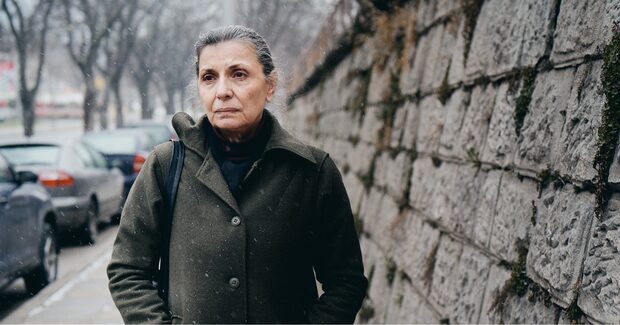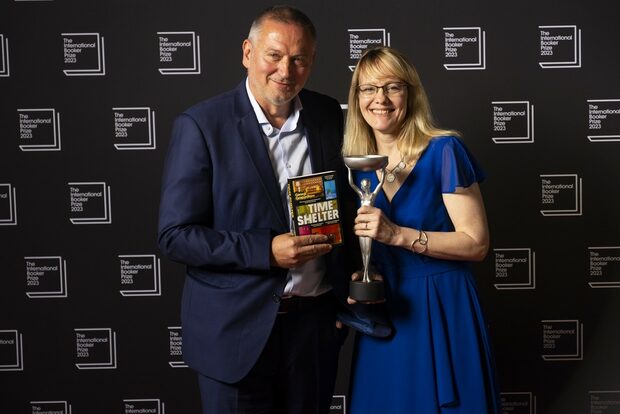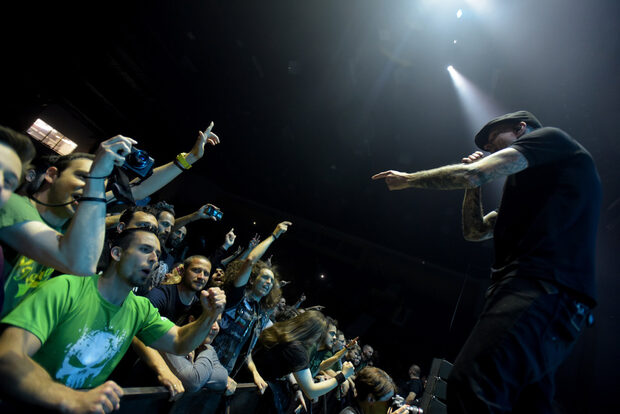"The situation in the world has never been grimmer, we have never been so close to self-destruction, as we see our values losing their worth (...) we now have a thousand genders, I don't know exactly how many genders, we have people who are not "them", a "she" or a "he", they are an "it" (...) There is a way out of this". This might sound like a disgruntled Alt-Right talking head on YouTube, or BSP's Kornelia Ninova, but actually the quote comes from a recent TV interview by ultra-religious pop singer Miro, formerly part of the cult duet Karizma, who has grown increasingly conservative as his solo career has flourished.
"There's a universal battle going on right now. God is showing us that we are not going the right way. If we don't turn to him, we will self-destruct," says another pop idol of the 1980s and 1990s, Sylvia Katsarova, in a TV interview for Bulgaria on Air in December 2022.
These opinions show a trend that has been taking shape in the Bulgarian mainstream recently: a large number of pop stars expressing highly conservative and radically anti-liberal positions. There is a geopolitical hesitation about whether the country belongs to the Western world, it increasingly looks "rotten", just like in totalitarian rhetoric. In interviews, the positions of Bulgarian celebrities, whether based on fact, conjecture or misinformation, are rarely challenged.
Liberalism as Counterculture
Upholding democratic values remains a priority almost exclusively for the artistic underground. Similar dynamics can be discerned in other domains: the screenings of Lucas Dont's Close in Sofia, Plovdiv and Varna, which were boycotted by Vazrazhdane activists, were met with relatively few reactions on the other side from the directors and actors who are widely recognized in the country.
Examples have become more numerous in recent years and often come from people who were associated with a completely different value image.
"I tremble for the normal people, we are already suffocating from the insolence and grandstanding of various perverts. And I make no apology for my words." These words might sound like Vazrazhdane leader Kostadin Kostadinov's latest rant, but in fact they are a criticism (on her Facebook profile) of the 2021 Sofia Pride event by Milena Slavova, former lead singer of the new wave legends from Revue and one of the leading figures in Bulgarian rock. In the 1980s and 1990s Slavova was a symbol of the desire for freedom and change. Now she sings at events in "defense of the Christian family." She is far from the only ex-rebel who changed her colors recently.
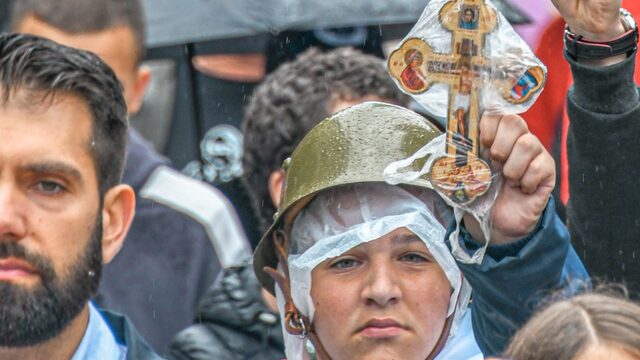
"Wonderful Euro-atlantic society - caviar, champagne and nothing Christian!" sang rapper Ustata ("the mouth") in his most recent "hit", called Colorful Genders, which mocks the agenda of LGBT activists. Ironically, two decades ago Ustata rode to fame on the back of his duet with Bulgaria's queer pop singer Azis. Now he rhymes "NGOs with GMOs" and ends the video with a quote from the Bible. The song was released in May, a few months after "Macedonia", in which he delivers "a first history lesson - Macedonia, it's not a country, it's a territory".
Another popular name from Bulgarian hip-hop, Spence, took a pro-Russian stance, and back in 2015 he released the song "F*ck America and Viva Russia". In contrast, another notable artist from the same hip-hop generation, Misho Shamara, has been outspoken in his liberal views, which have intensified since his move to the USA about a decade ago.
Apart from a temporary flurry of rebukes on social media, the singers usually incur no damage to their brand - no one seems to have lost their audience or their relevance within it because of their newfound conservatism.
West or Vostok?
What could be the explanation and why is it, just like at elections, performers' views can also be easily bought or manipulated? Or - as the early 1970s song popularized by Elvis Costello asks - "what's so funny 'bout peace, love and understanding?"
"Because Bulgarian music has not outgrown the provincialism of the socialist pop of which it is a direct descendant. It is still a detached, navel-biting island in the midst of modernity," says Vladimir Konstantinov, a longtime journalist, author at Capital, and over the years editor-in-chief of the Bulgarian editions of Esquire and Men's Health.
Konstantinov cites the discussions around the positions of former Pink Floyd member Roger Waters. Waters' well-known anti-war rhetoric dates back to the 1970s with concept albums such as The Wall, but more recently his anti-imperialism has turned to criticism of Ukraine and the Western world's positions, paranoia at his supposed persecution as an inconvenient figure for political leaders, and semi-vocal support for Putin's regime in Russia.
"With our entertainers we have simple ignorance and unintelligence, while in Waters' positions we can find an explanation - his leftist beliefs are dictated by his family history and traumas. If in the early Waters there is still an adequate critique of capitalism and a rebellion against the system, in our stars there are shawls, dancing in front of caves, an attempt at a kind of orthodox pop."
In his view, Bulgarian music largely continues to inhabit "a kind of socialism of its own," as it relies excessively on subsidies from cultural programs as well as municipal or sponsorship money for major events. This makes them increasingly passive if they have to express critical positions against the powerful of the day. According to Konstantinov, there is also something quite logical in what's been happening: if society is divided between the West and the East, why should we expect our public figures not to be divided?
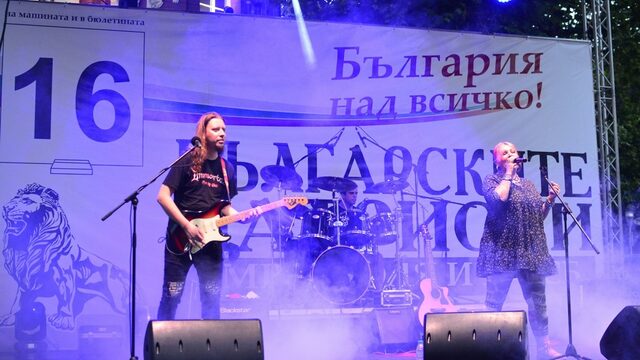
The journalist describes himself as an optimist about the future, but right now he sees no signs that this mindset is going away: "It's still not fashionable here to express an opinion on anything other than tomato prices." He describes this phenomenon as "a provincial mentality brought up dutifully under socialism: we're small, we have nothing to say about things that are bigger than us." This in also evident in the way we deal with reality abroad: "Not only when traveling, but in general, the Bulgarian feels like a tourist, not a citizen of Europe - the commitment and responsibilities that would result from the latter are rather alien to him."
Is there room for democracy in the small market?
For Elena Peneva, there is also a similar relationship between society and artistic environment. She trusts the representative surveys that in recent years indicate that there is an increasingly conservative mood in society, a growing division that goes with distrust of democracy as a system of government and the Western world (according to research by Alpha Research in January 2022, 46% distrust the NGO sector because of "funding from abroad", and this June 32% say they approve of Putin's regime and at the same time 56% see the US as the main provocateur of the war; Bulgarians also have the lowest trust in NATO's protective role).
"While Hollywood and the Western music mainstream remain staunchly liberal, in our country the artists imitating them are mostly at the opposite extreme," says Elena Peneva, a longtime journalist and PR. She says she is impressed by how even popular gay performers shoot videos in which only hetero relationships are shown. And there has not been a single public disclosure of a different sexuality in the last two decades.
"I believe part of the reason for this is the small market and the stiffening fear of rejection from a potential audience. However, a much more important factor is that Bulgarian performers are Bulgarian. And as public attitudes are, so are theirs. Also, in a society confused by populist political scaremongering, popularity is not a power to change attitudes and thought leadership - rather it is something to be preserved at all costs."
"The situation in the world has never been grimmer, we have never been so close to self-destruction, as we see our values losing their worth (...) we now have a thousand genders, I don't know exactly how many genders, we have people who are not "them", a "she" or a "he", they are an "it" (...) There is a way out of this". This might sound like a disgruntled Alt-Right talking head on YouTube, or BSP's Kornelia Ninova, but actually the quote comes from a recent TV interview by ultra-religious pop singer Miro, formerly part of the cult duet Karizma, who has grown increasingly conservative as his solo career has flourished.
"There's a universal battle going on right now. God is showing us that we are not going the right way. If we don't turn to him, we will self-destruct," says another pop idol of the 1980s and 1990s, Sylvia Katsarova, in a TV interview for Bulgaria on Air in December 2022.








